The possums have been released and took off without a second glance. Before their release, though, I managed to snag a couple more videos of them doing their hissy-pissy routine and eating.
Another gorgeous little bluebird fledgling came in, male this time. He was never “right”, refusing to attempt flight even though he was clearly old enough and acting “cuddly”, which is just not normal for a healthy wild-raised bluebird. His rescuers said he was snatched up from the ground just before a dog got to him, leading me to wonder if the whole issue from the get-go was that the poor fellow just couldn’t fly, period.
At any rate, I was placing him in the flight during the day to encourage flight and bringing him back in at night, as perching also seemed problematic. His third night on this routine, he just…died. For no apparent reason. These are the deaths rehabbers hate—when the only explanation that can be offered is the generic, all-encompassing “failure to thrive.”
It was after hours for Smalley’s Animal Hospital, but I knew vet Richie Hatcher was an archer, and vet Shelley Baumann owns Happy Tails Mobile Vet Clinic, so I contacted both. Richie walked me through how to remove the arrow without killing the bird, and Shelley was on standby in case we needed her. Fortunately, the arrow missed anything vital and nothing even appears to be broken. The vulture is quite aggressive and an amazing escape artist, so since I’ve had to move the great horned back inside, the vulture is now in the flight pen, where he seems much happier.
Folks, just a reminder: ALL migratory birds (and this includes everything except pigeons, starlings and house sparrows) are protected by the Migratory Bird Treaty Act—even game birds out of season. That makes it a federal crime to injure/kill them, possess their body parts (including feathers), disturb their nests or keep them in captivity. That’s ALL birds: songbirds, waterfowl, raptors—ALL of them. Leave them alone in the wild, leave their nests alone, and if you find a bird needing help, CONTACT A LICENSED REHABBER IMMEDIATELY.
Finally, to end on a more upbeat note, the pileated is still hanging around and demanding handouts periodically throughout the day, making for fun photo ops!
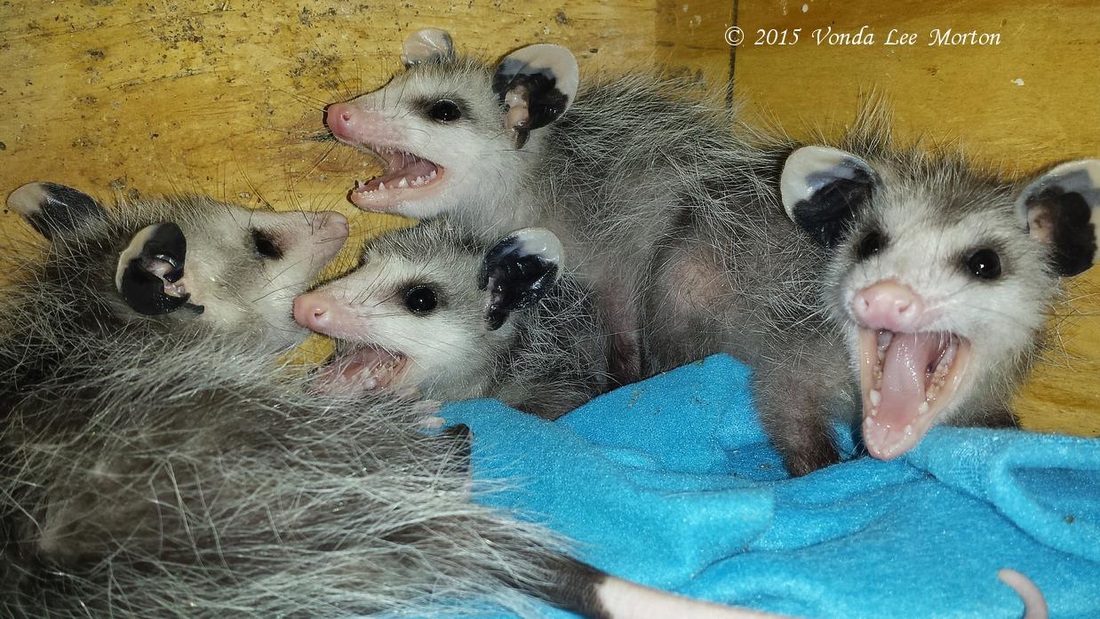
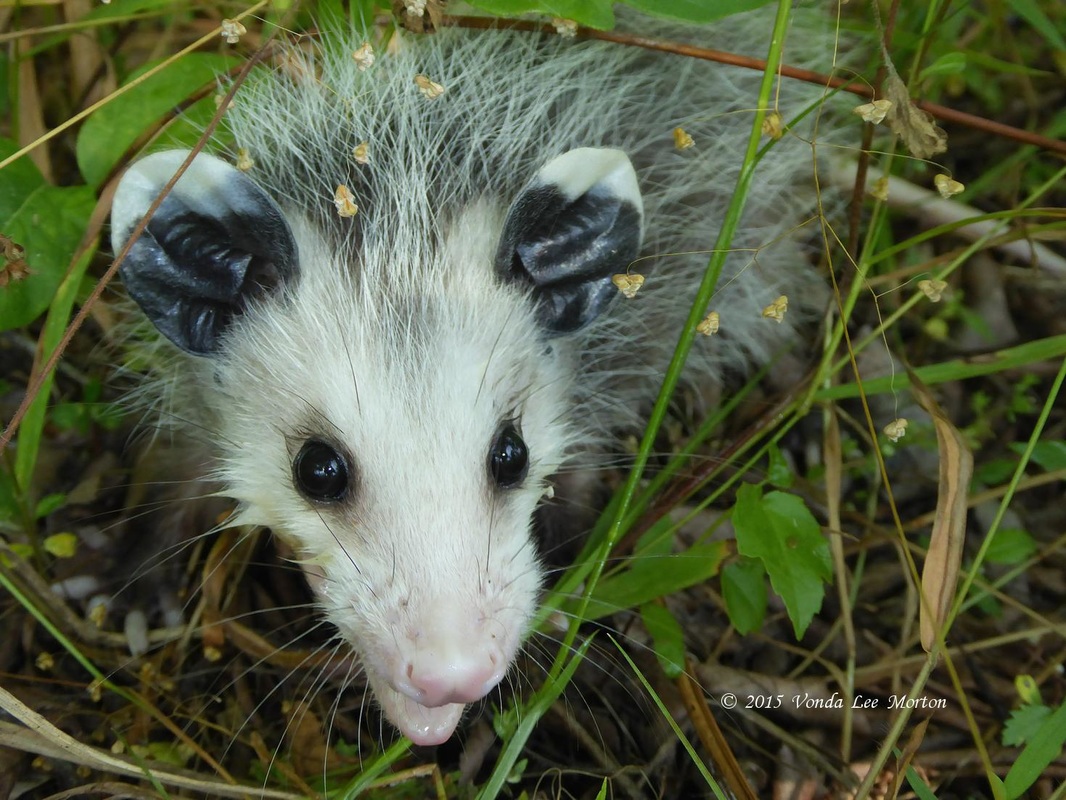
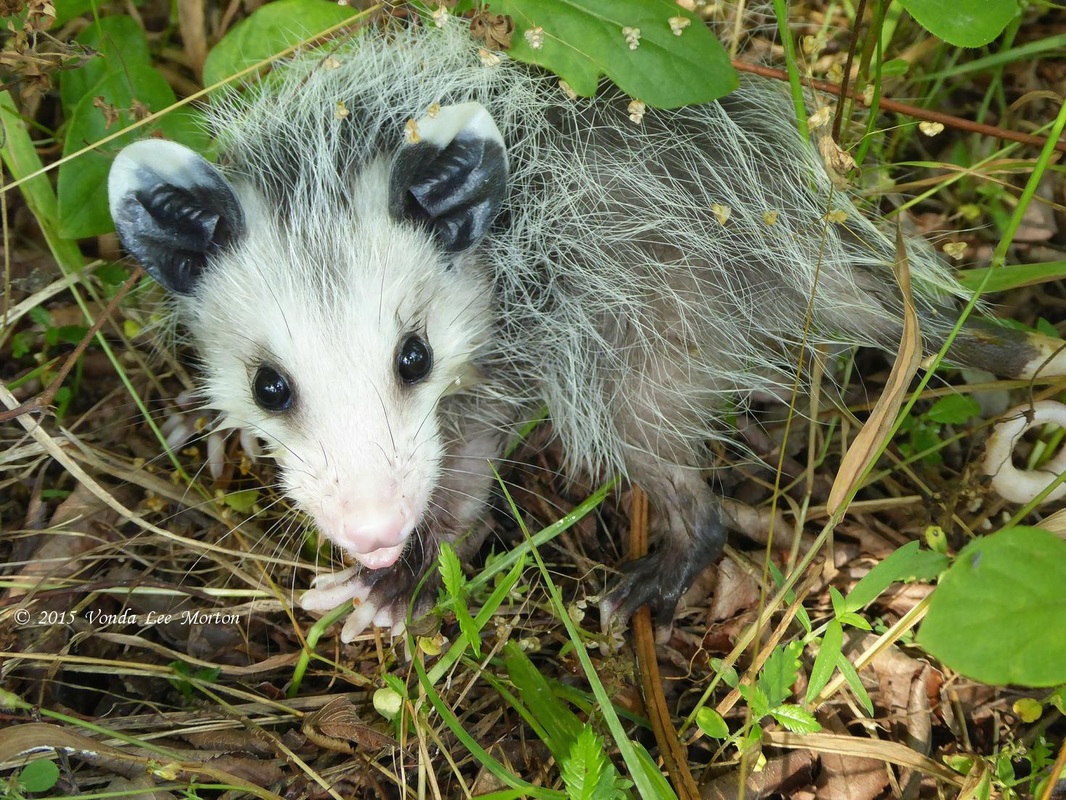
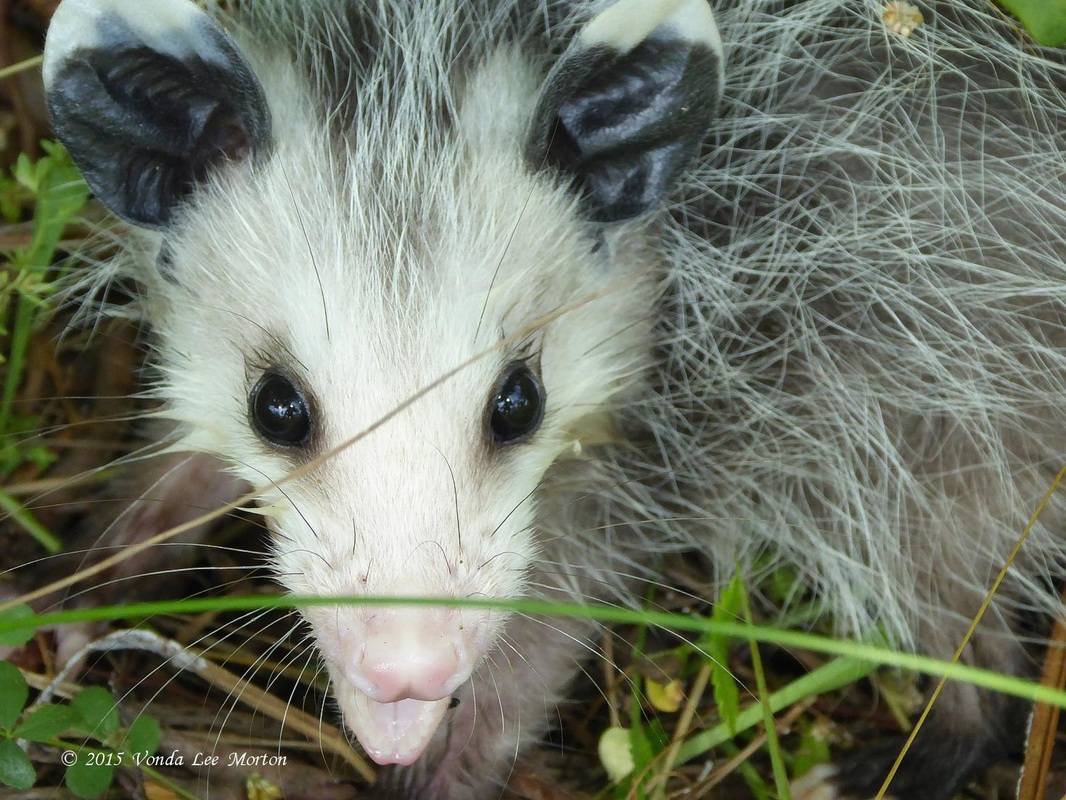
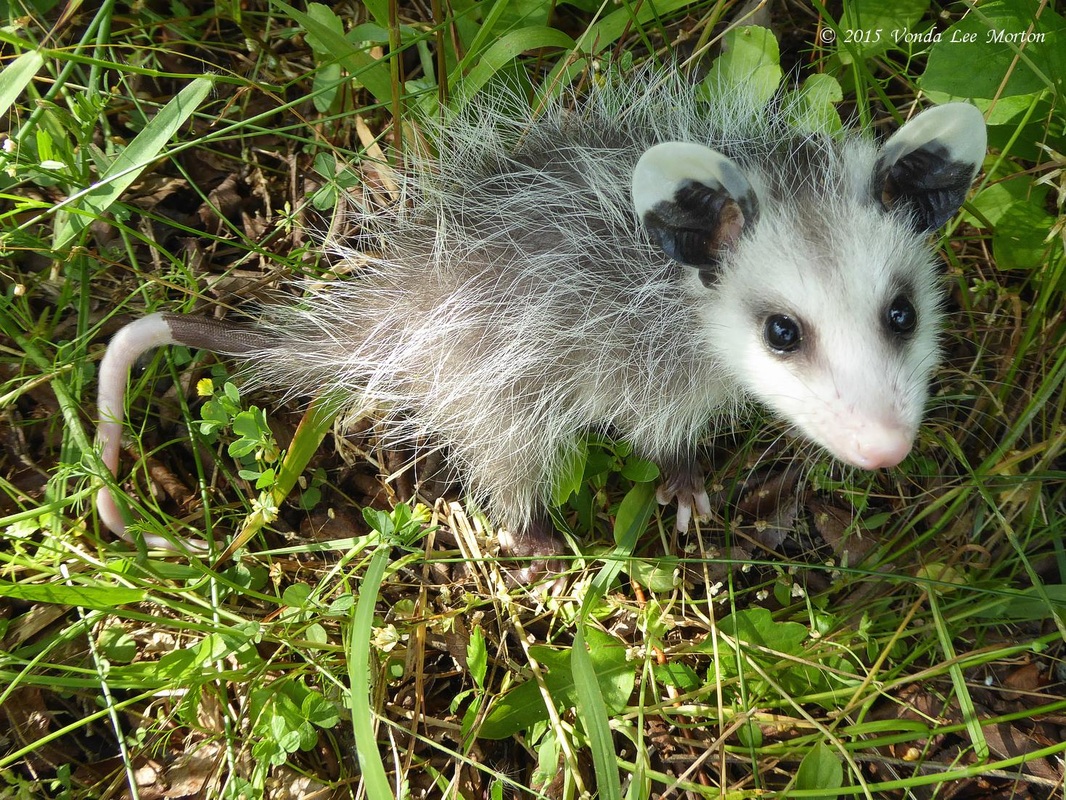
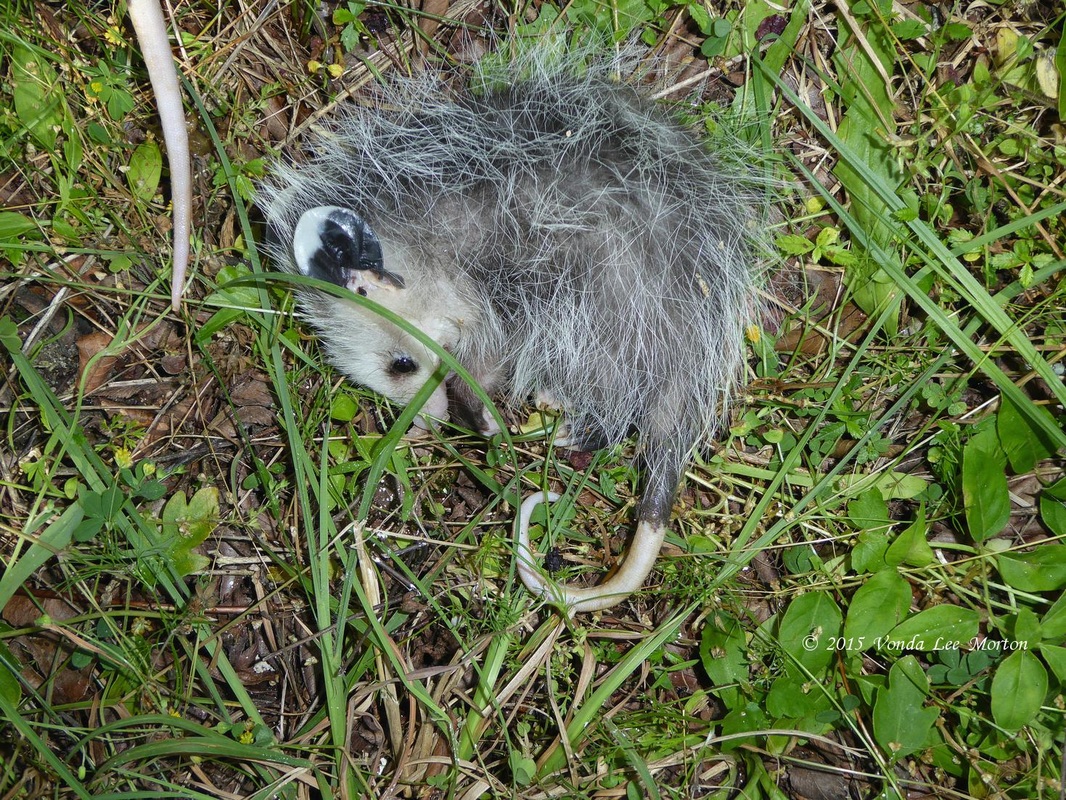
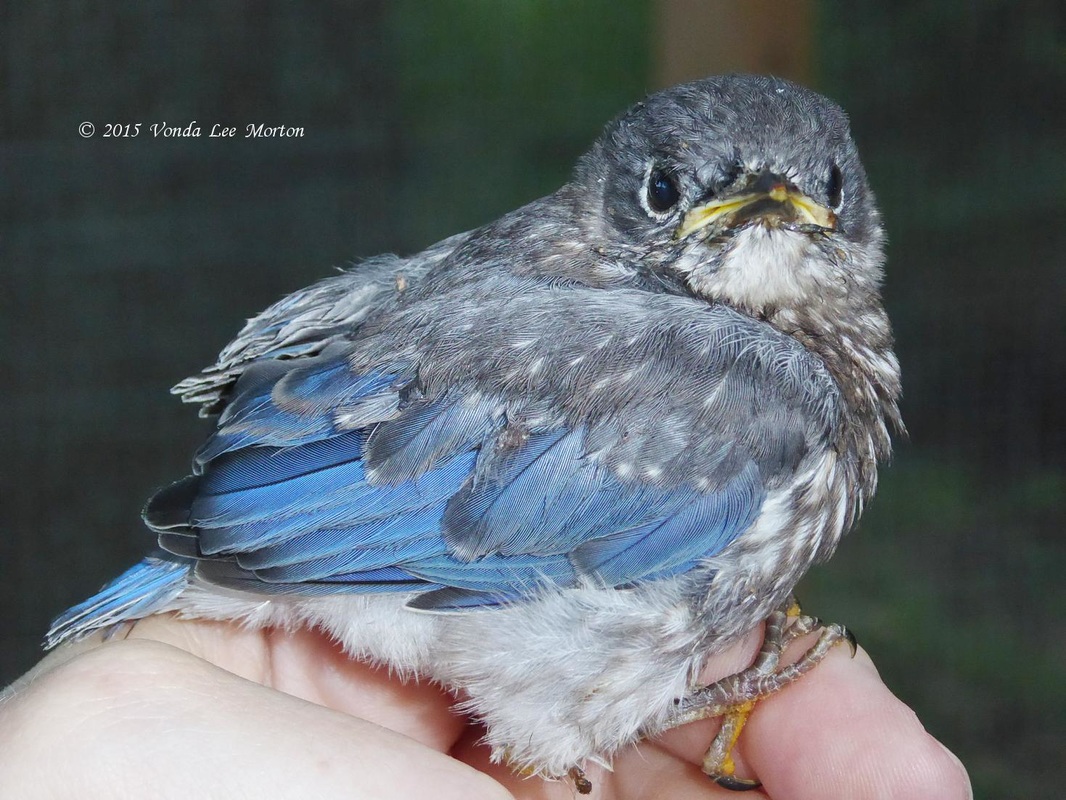
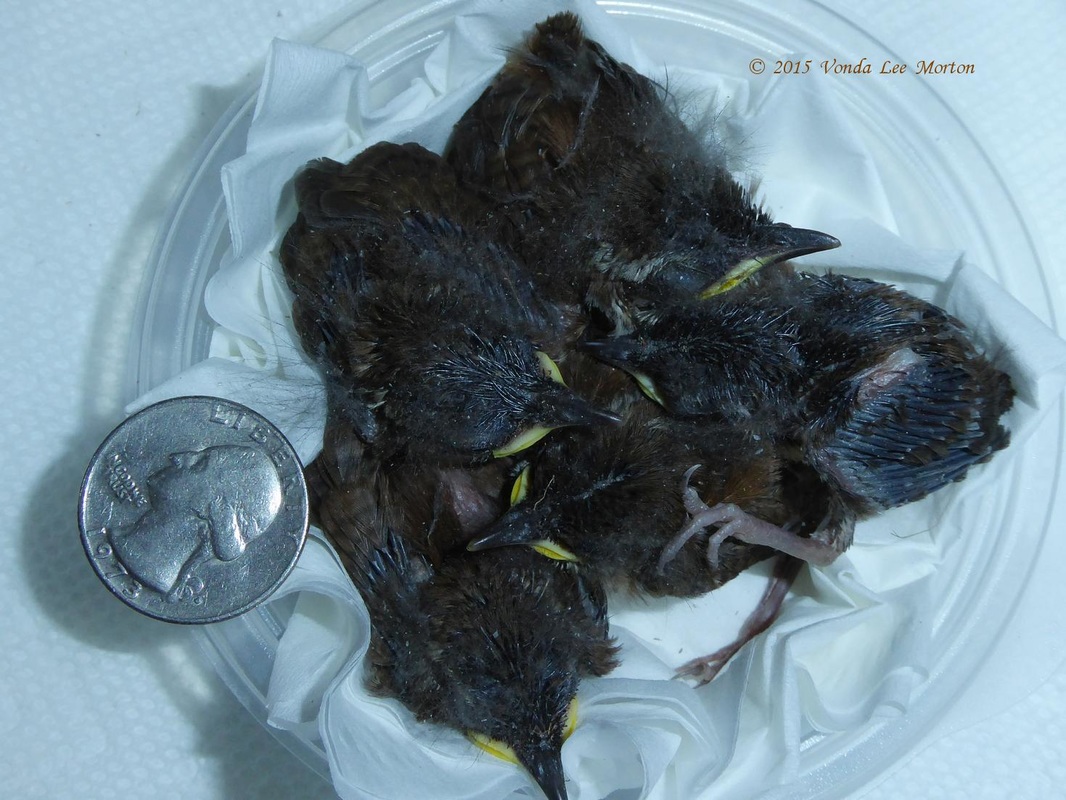
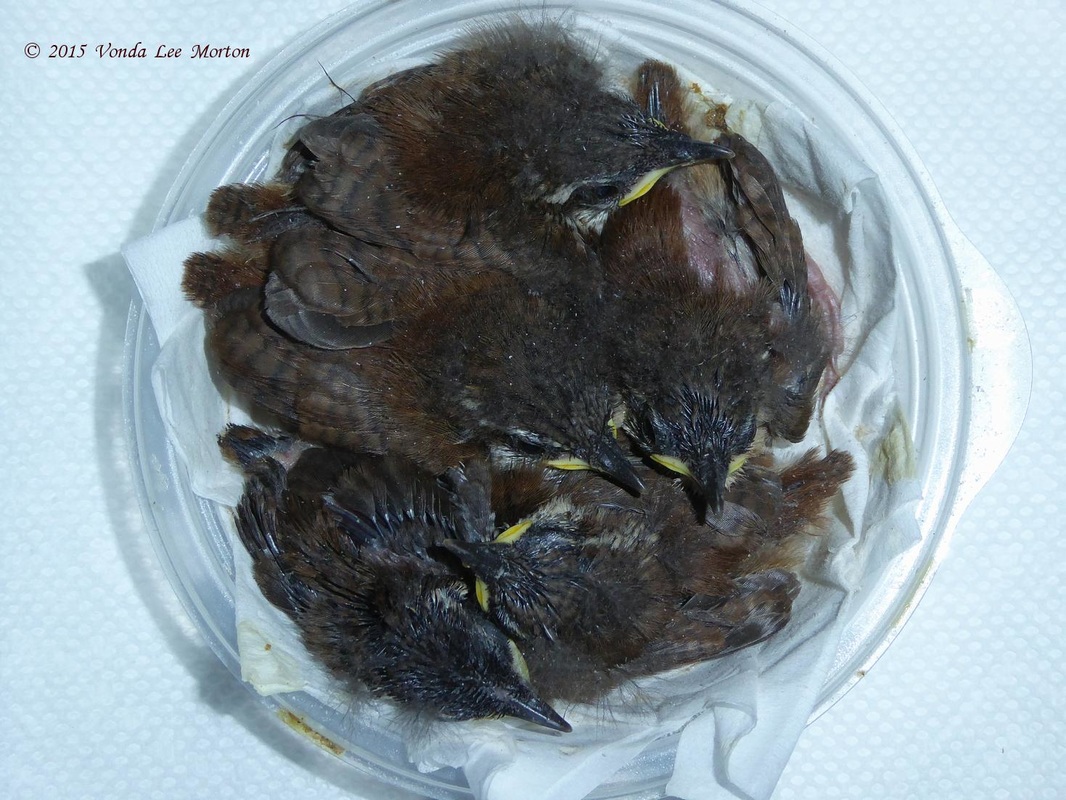
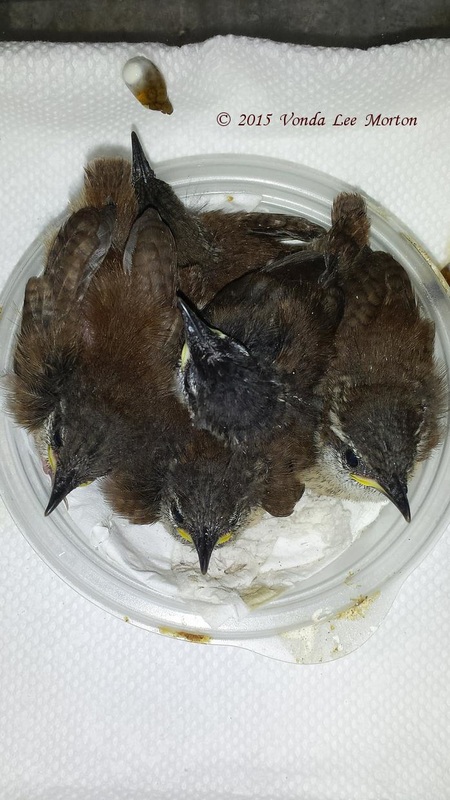
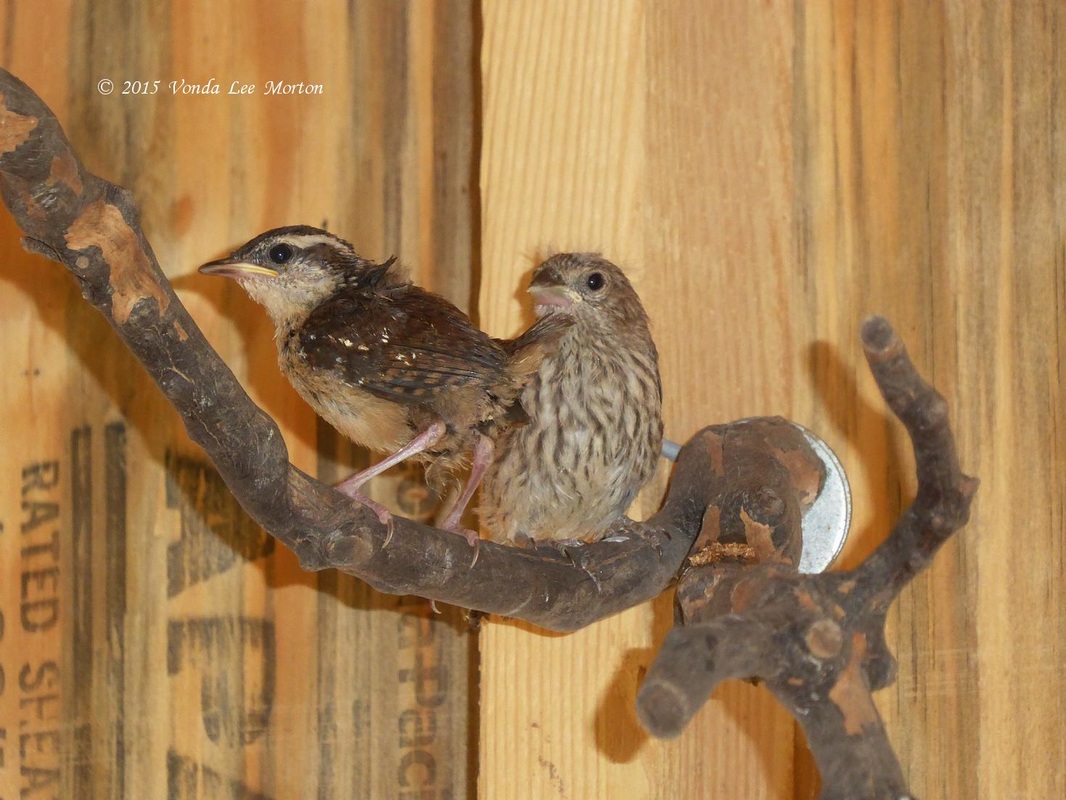
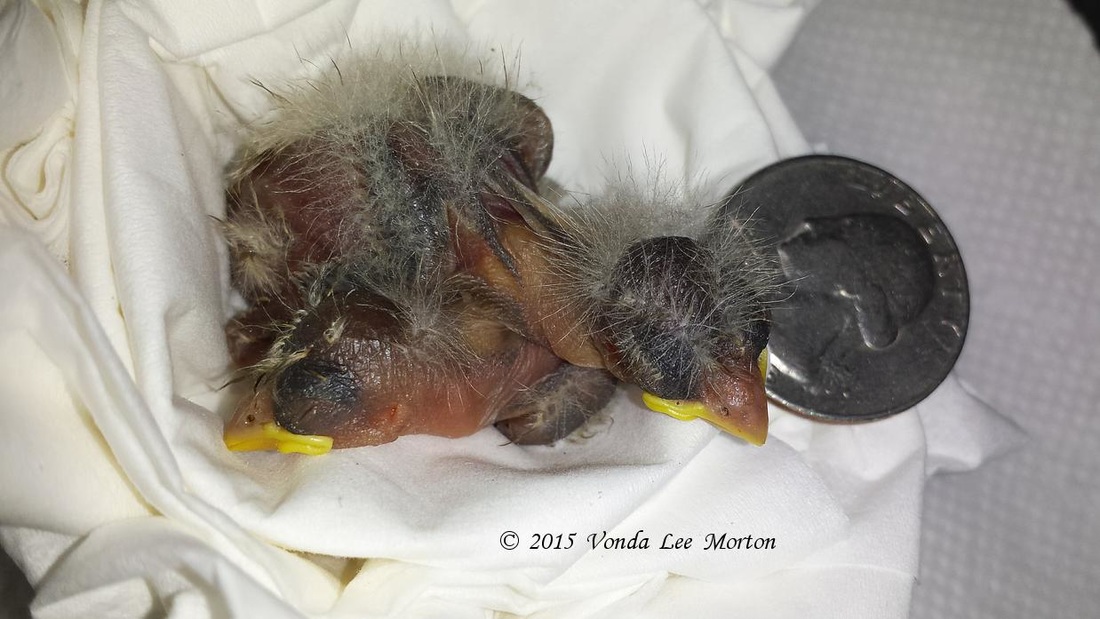
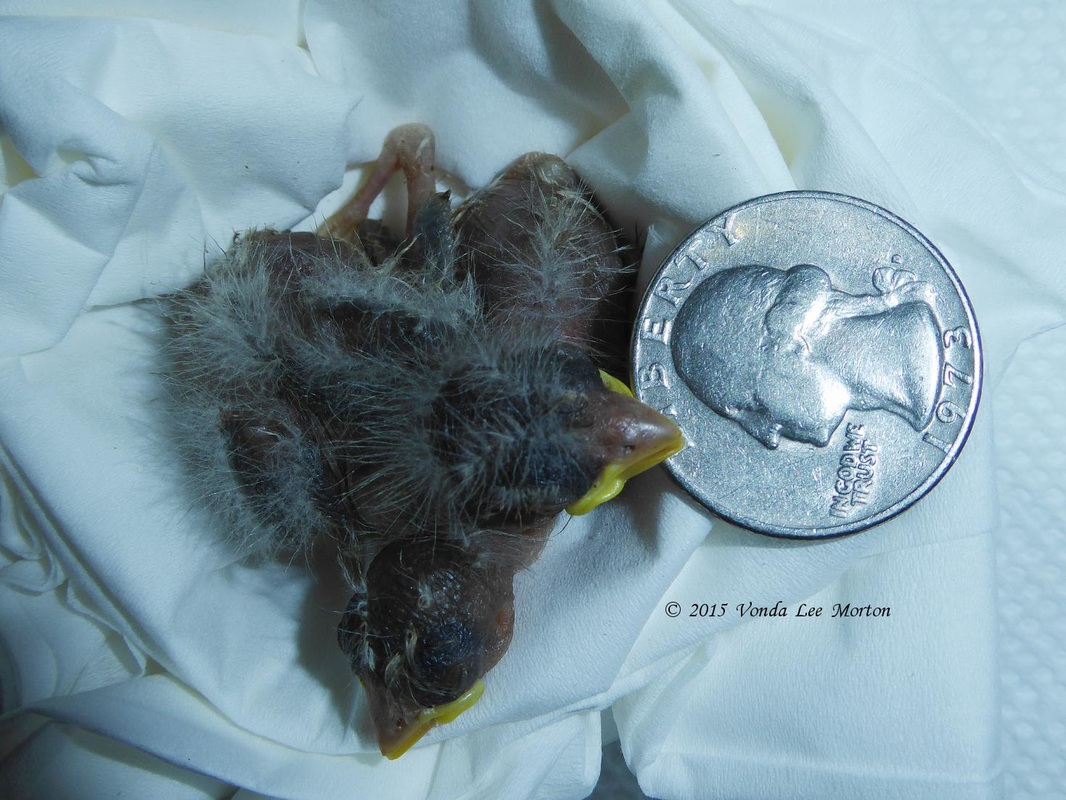
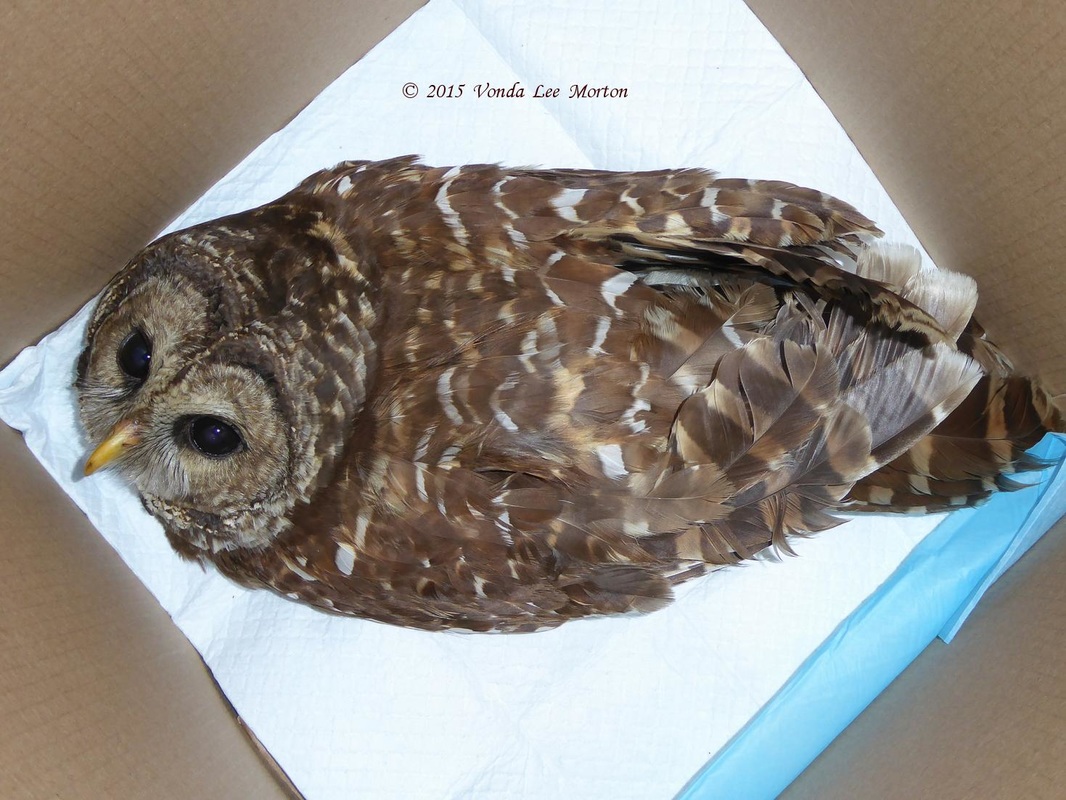
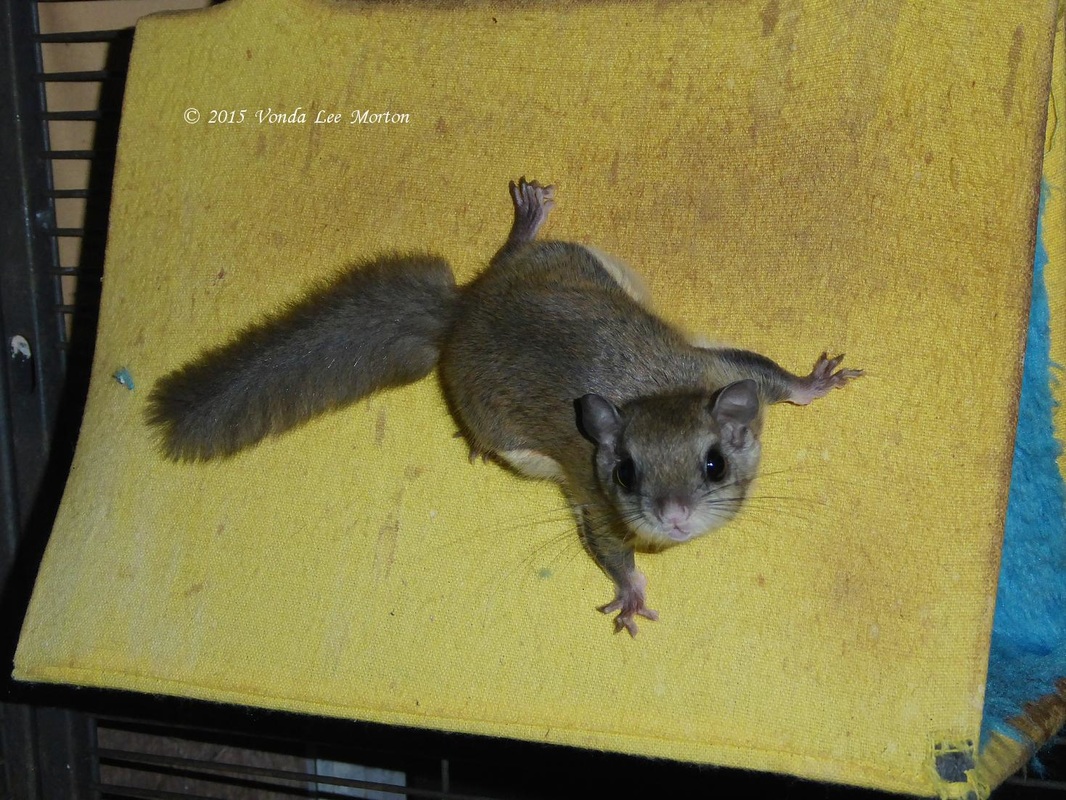
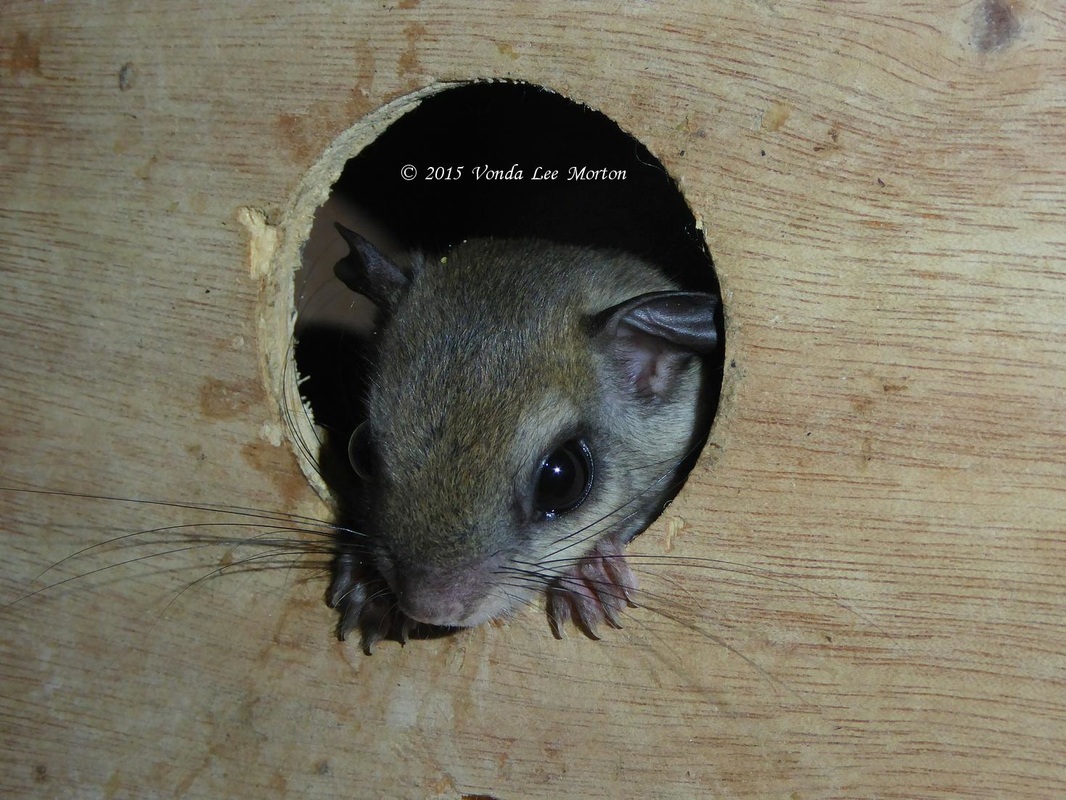
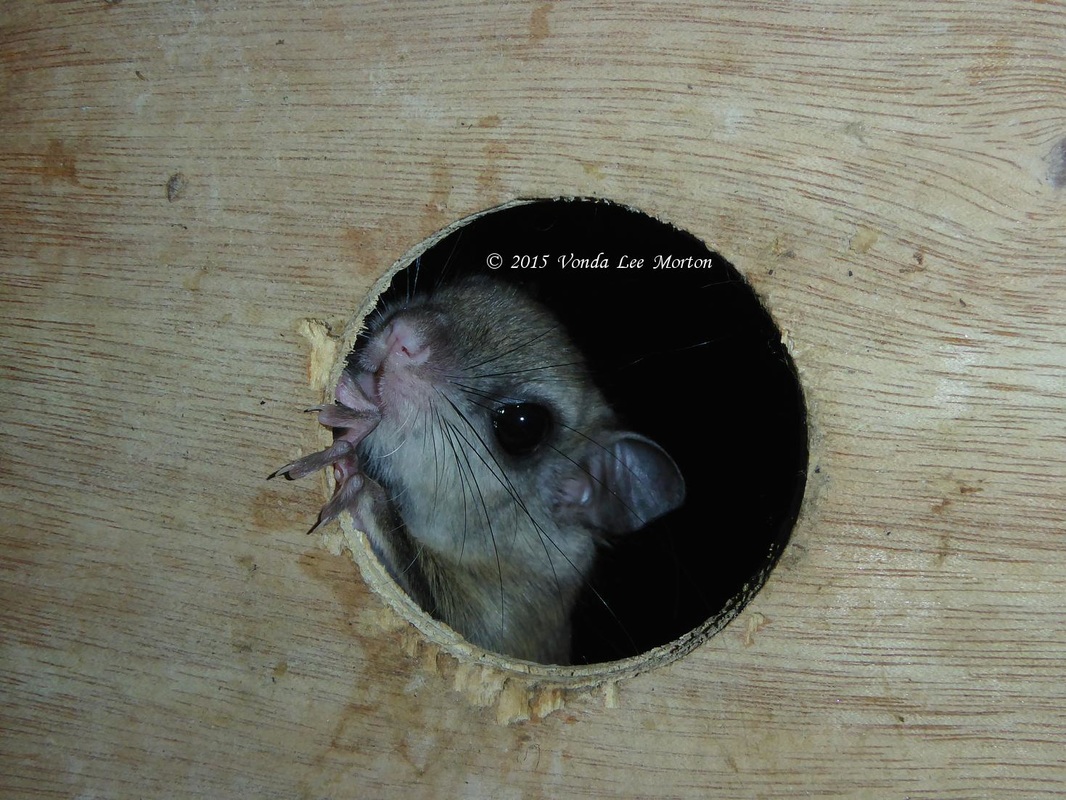
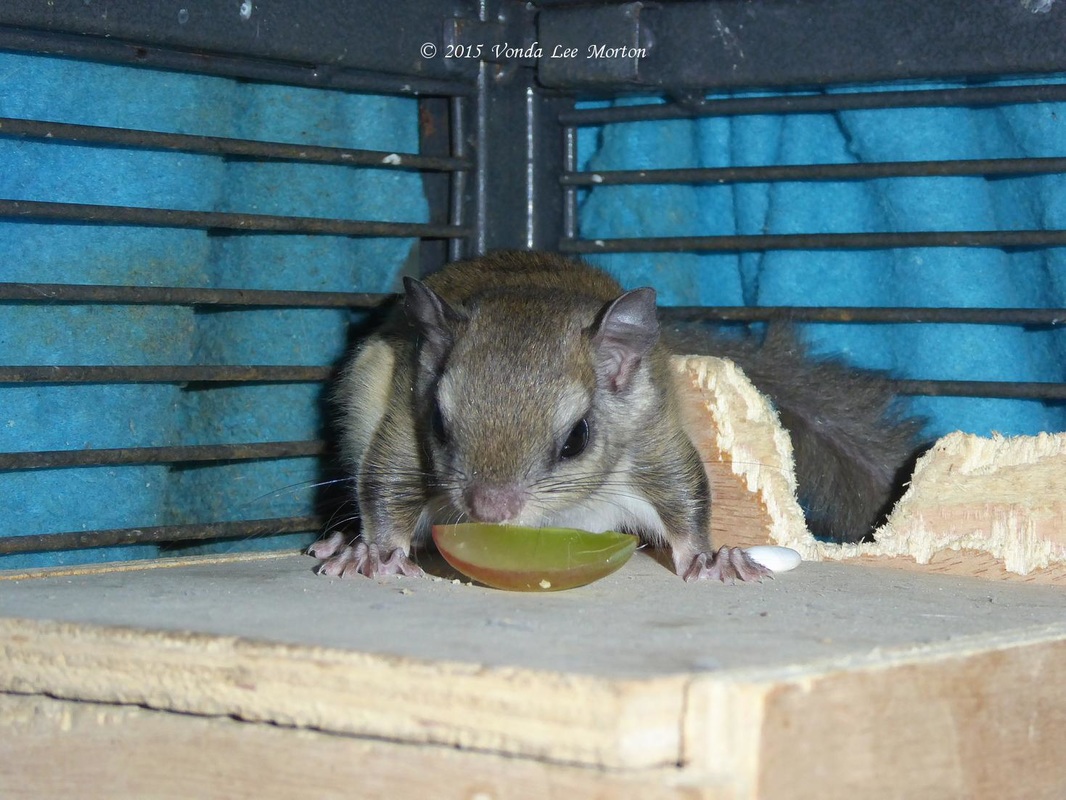
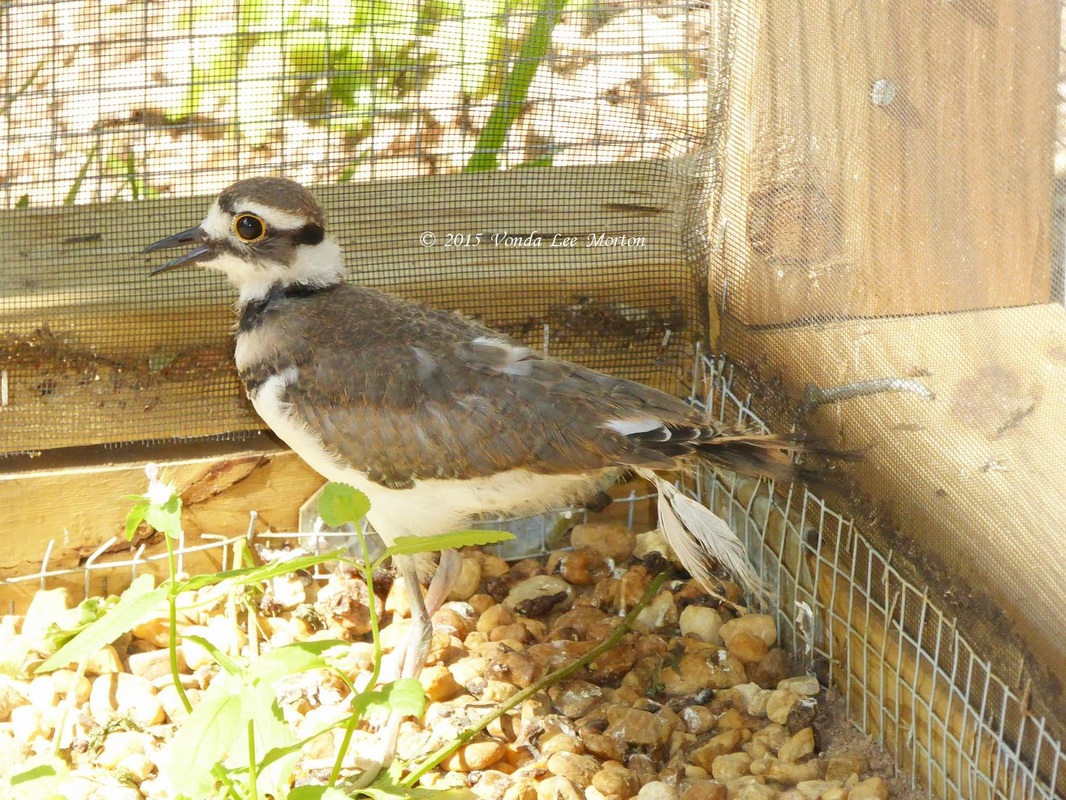
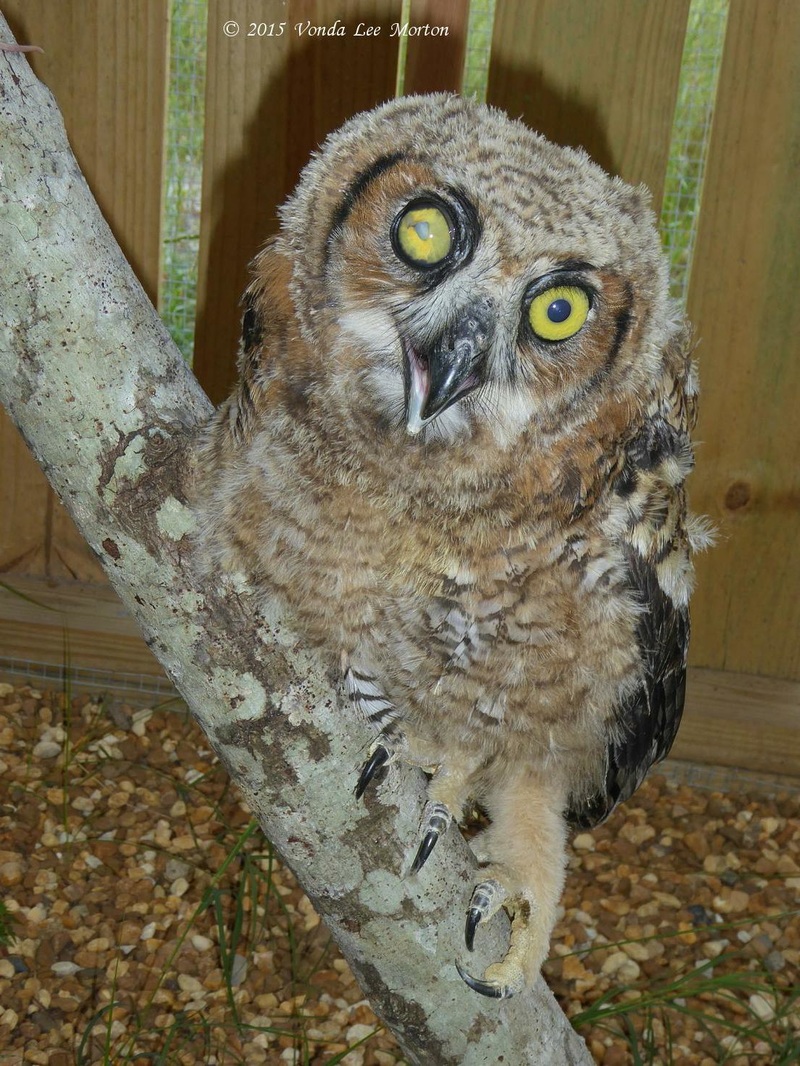
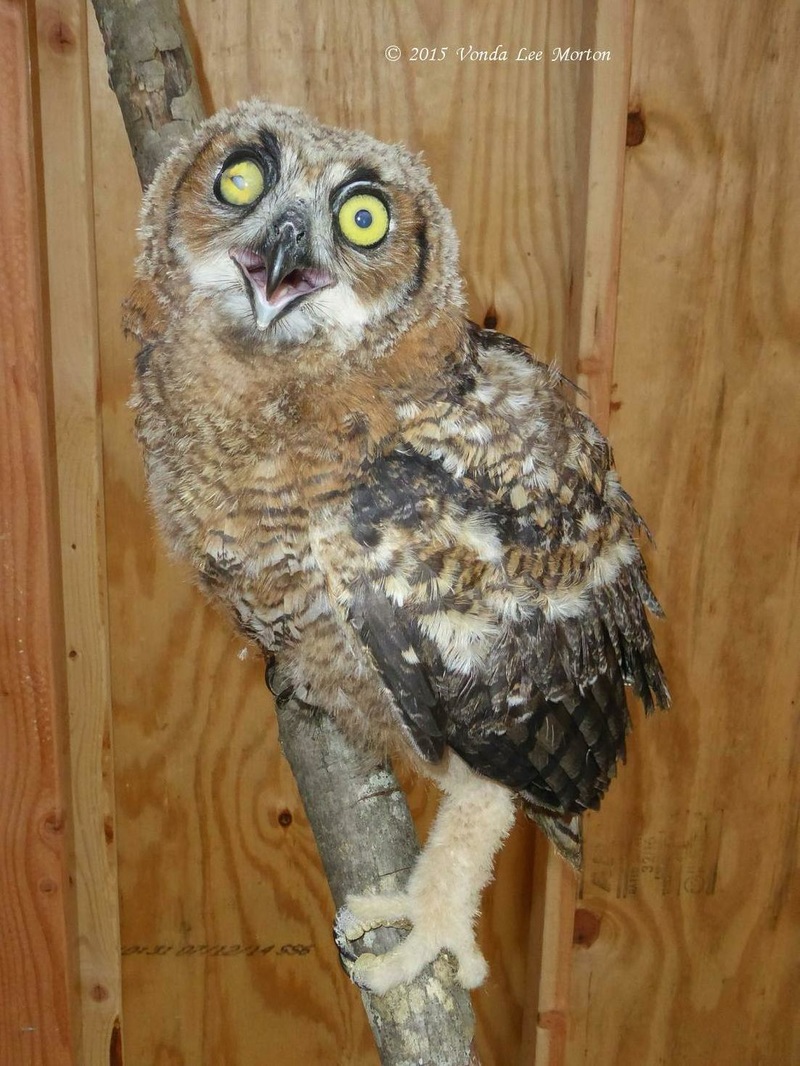
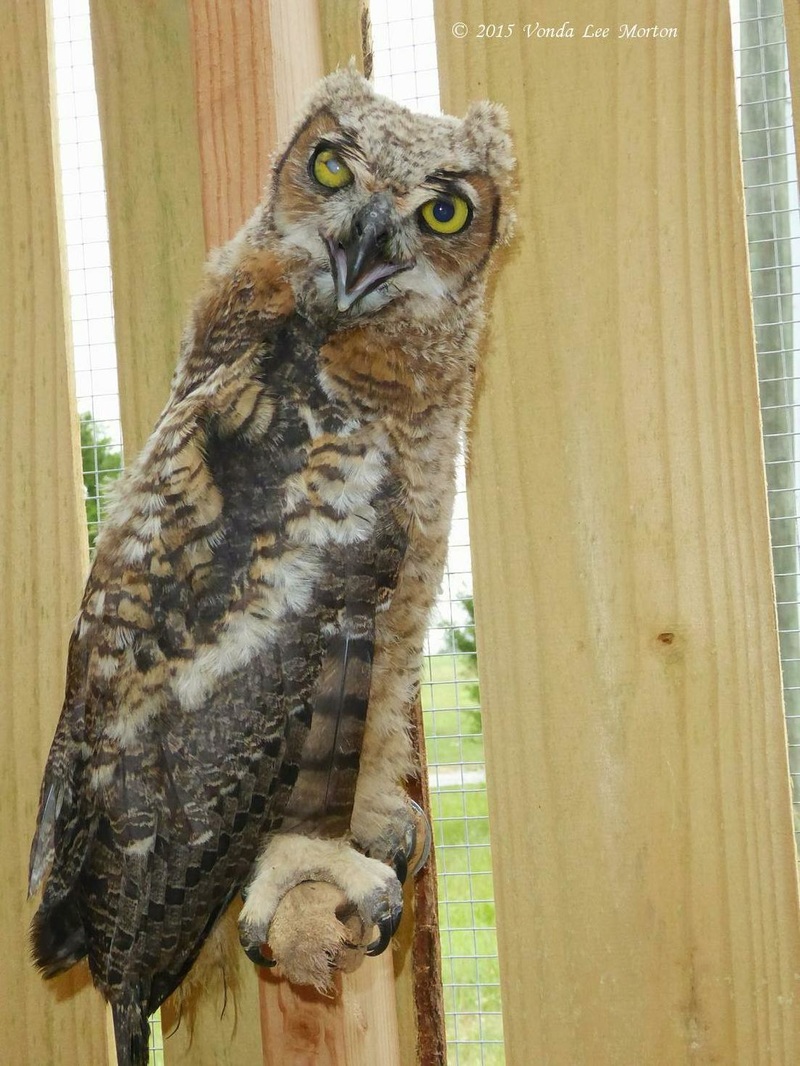
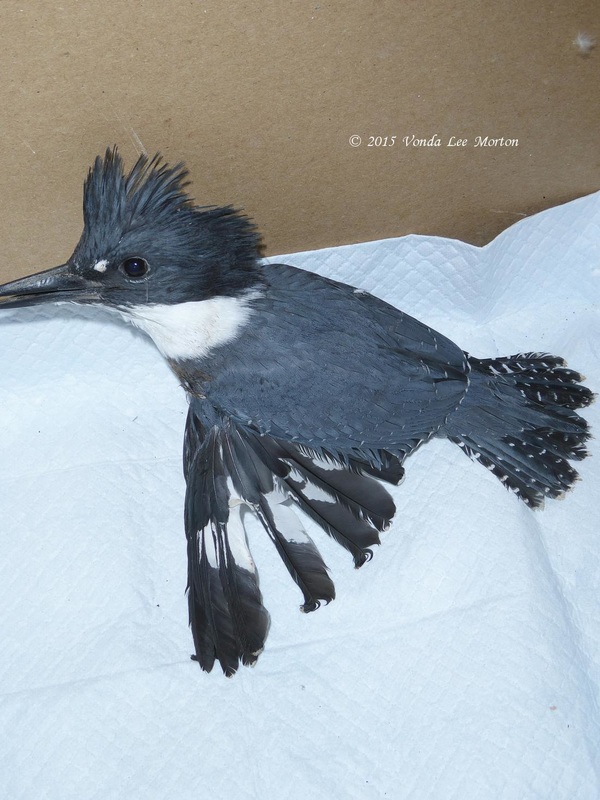
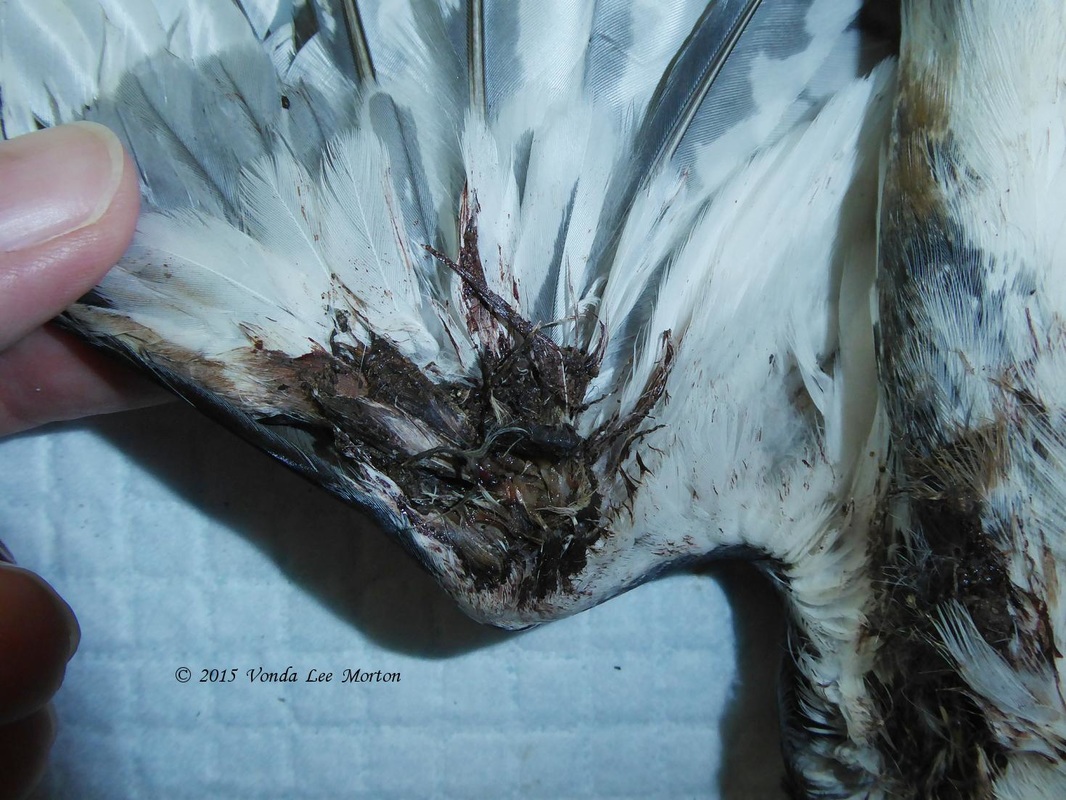
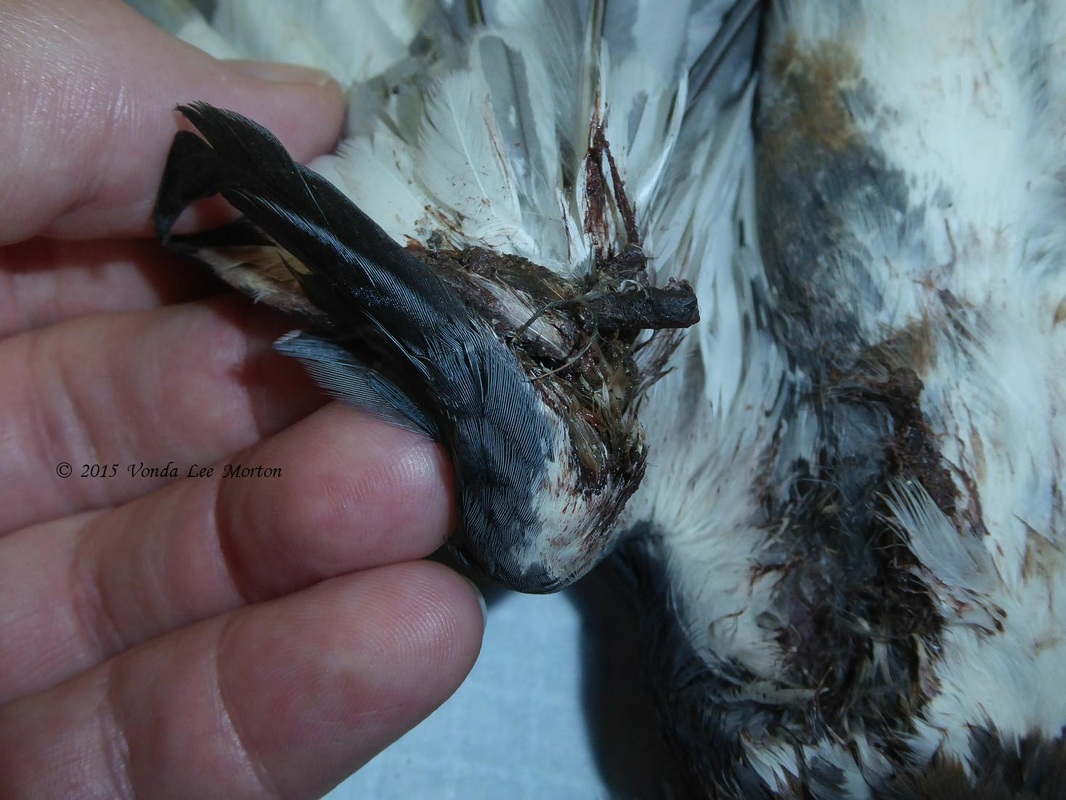
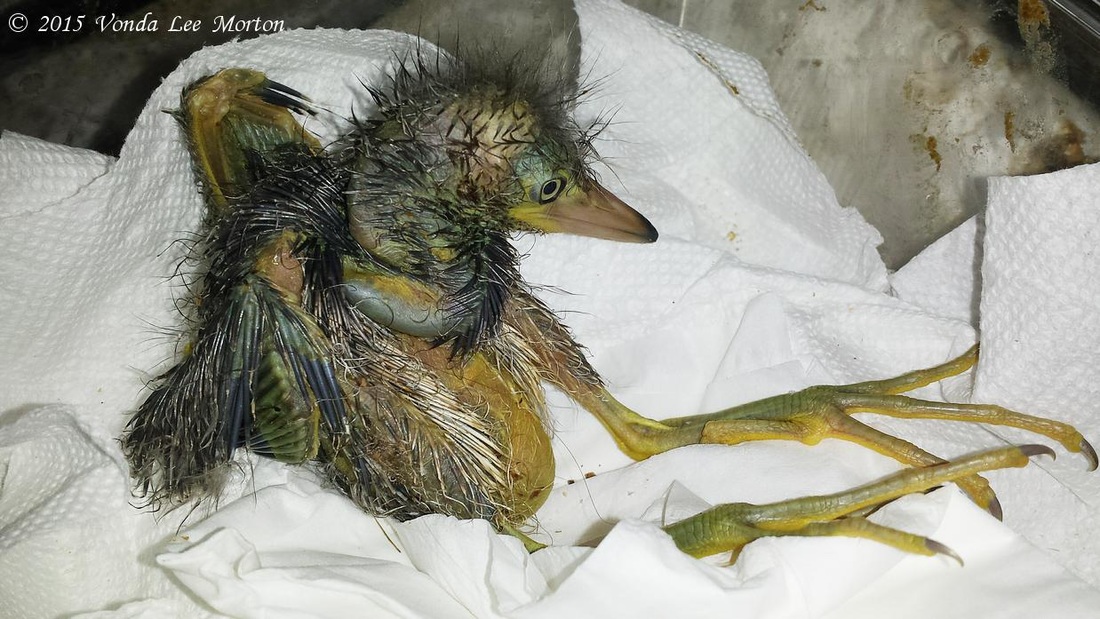
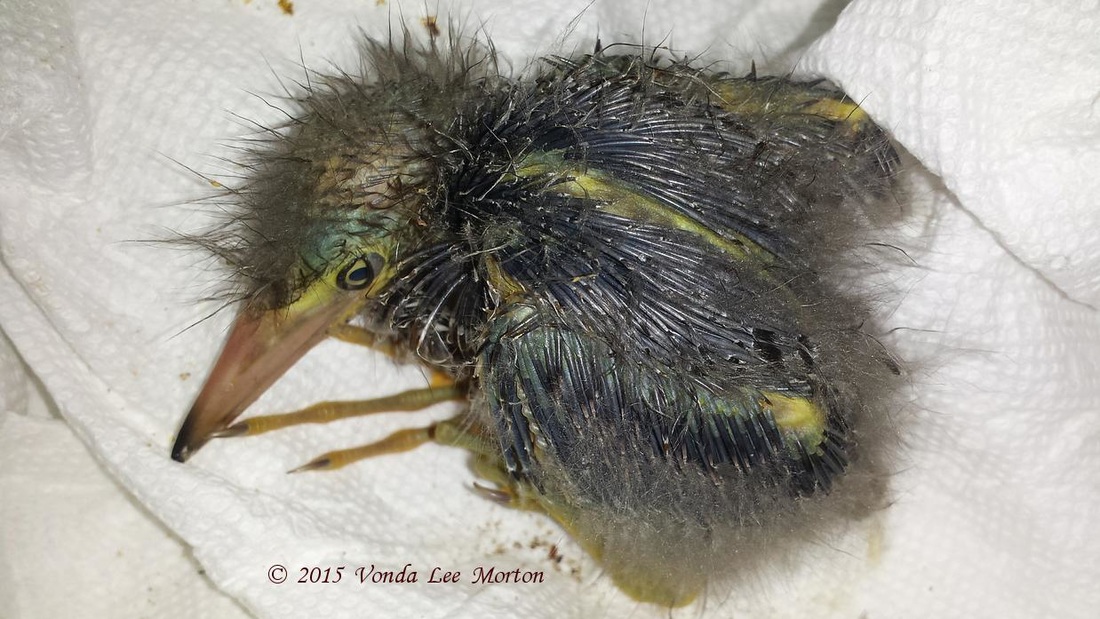
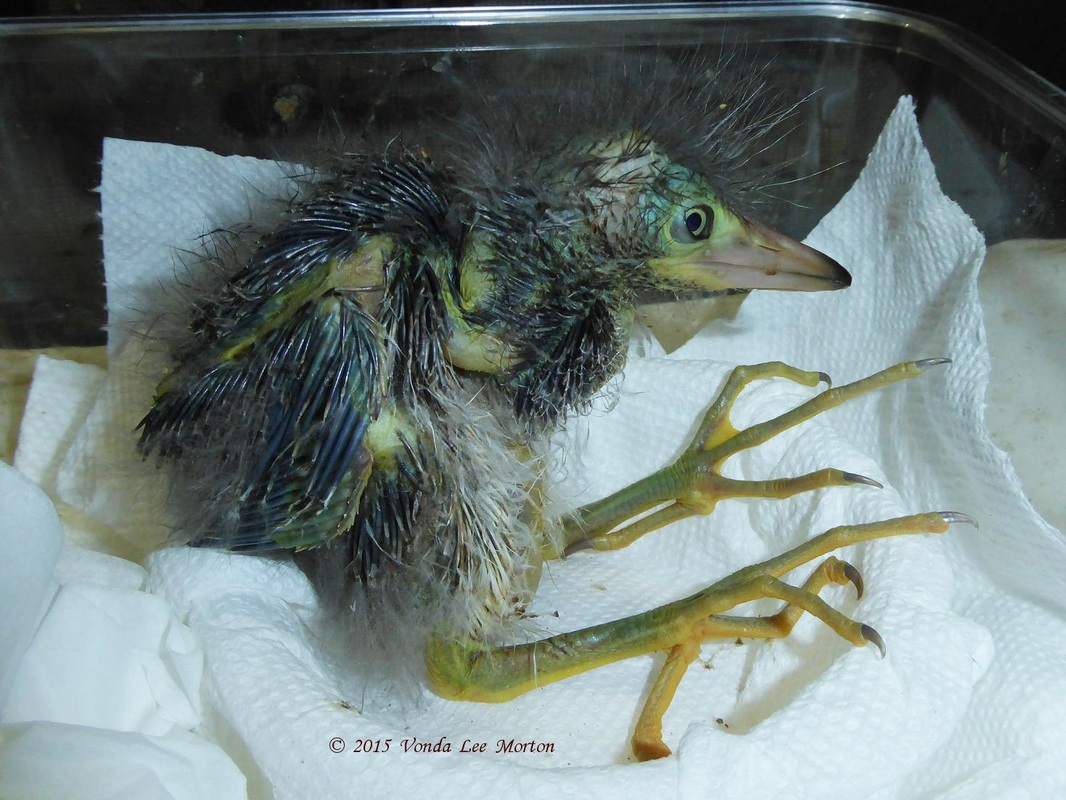
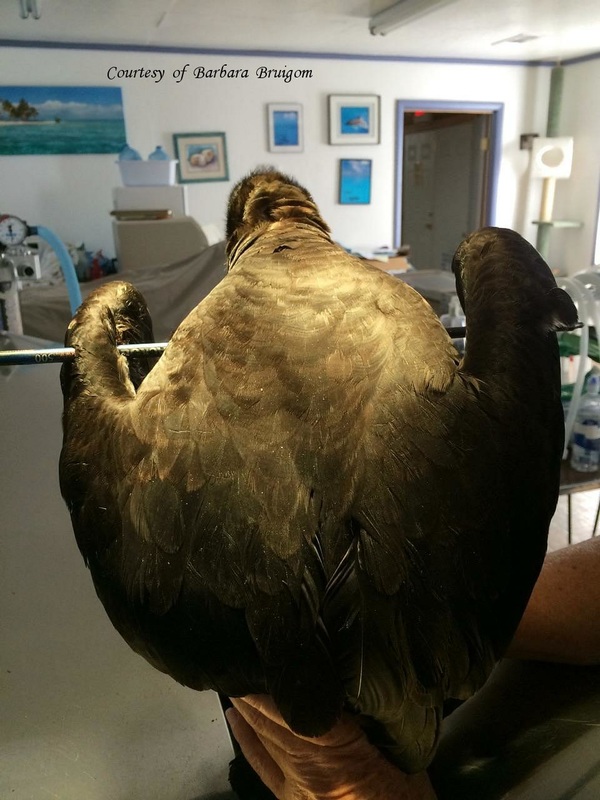
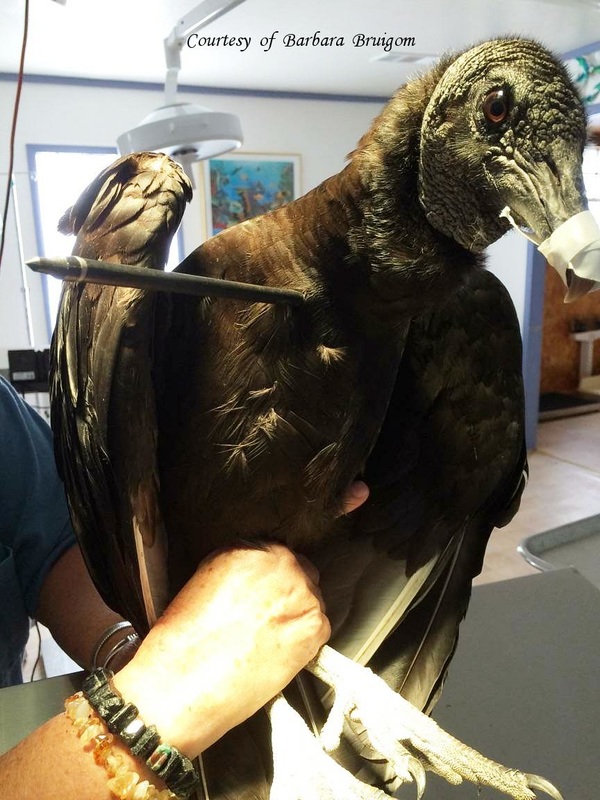
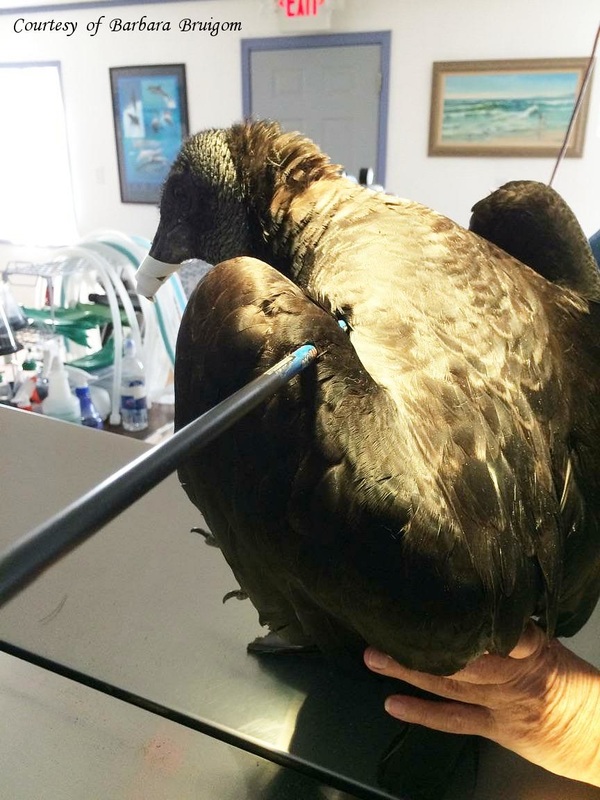
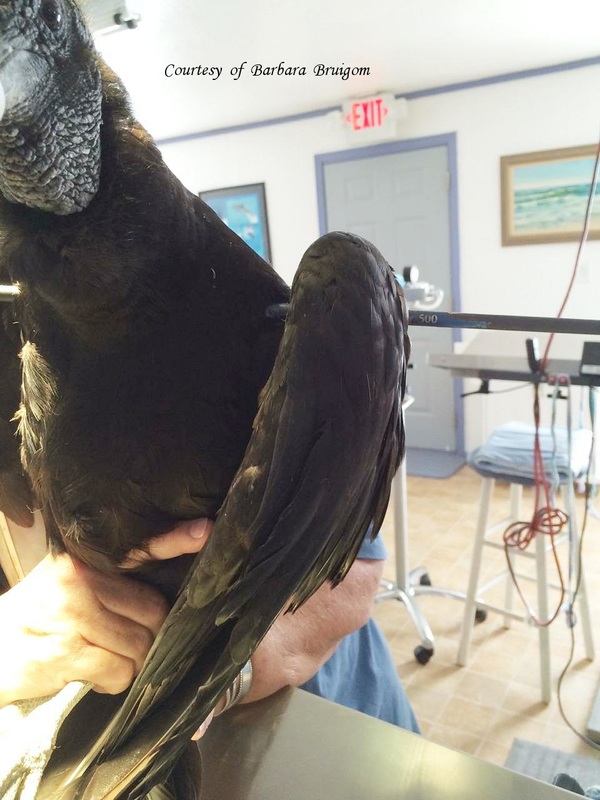
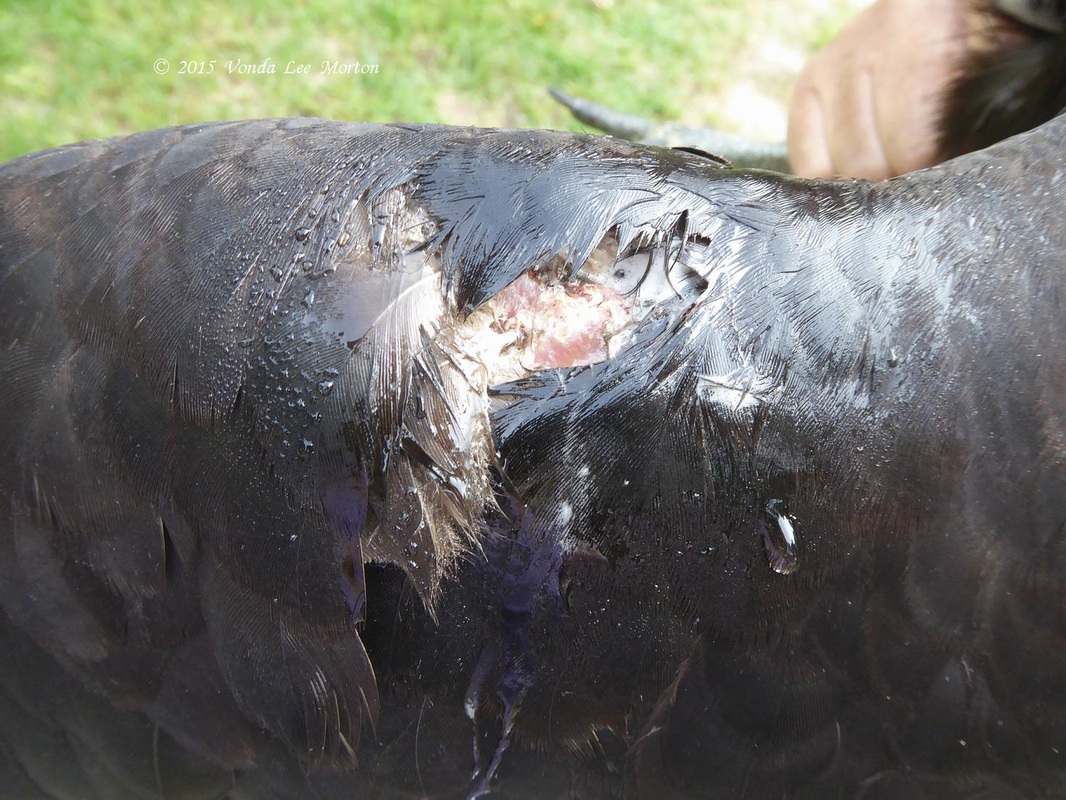
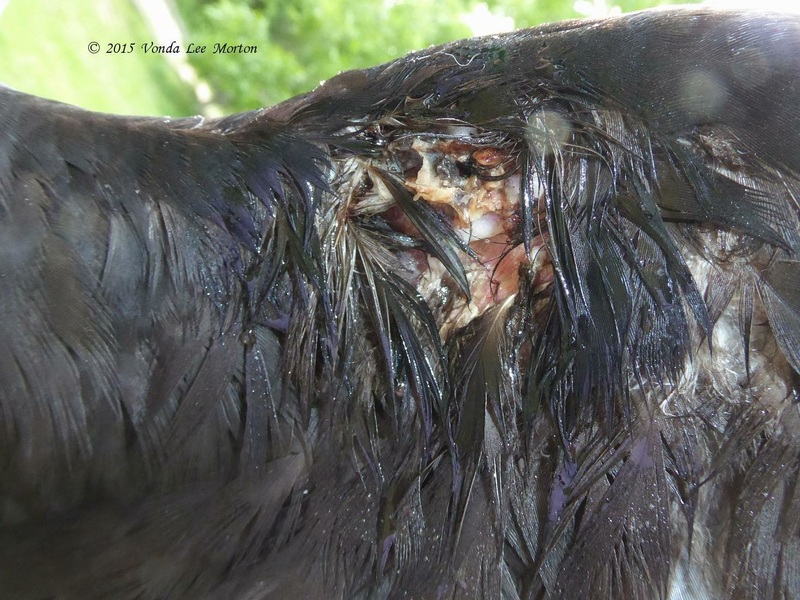
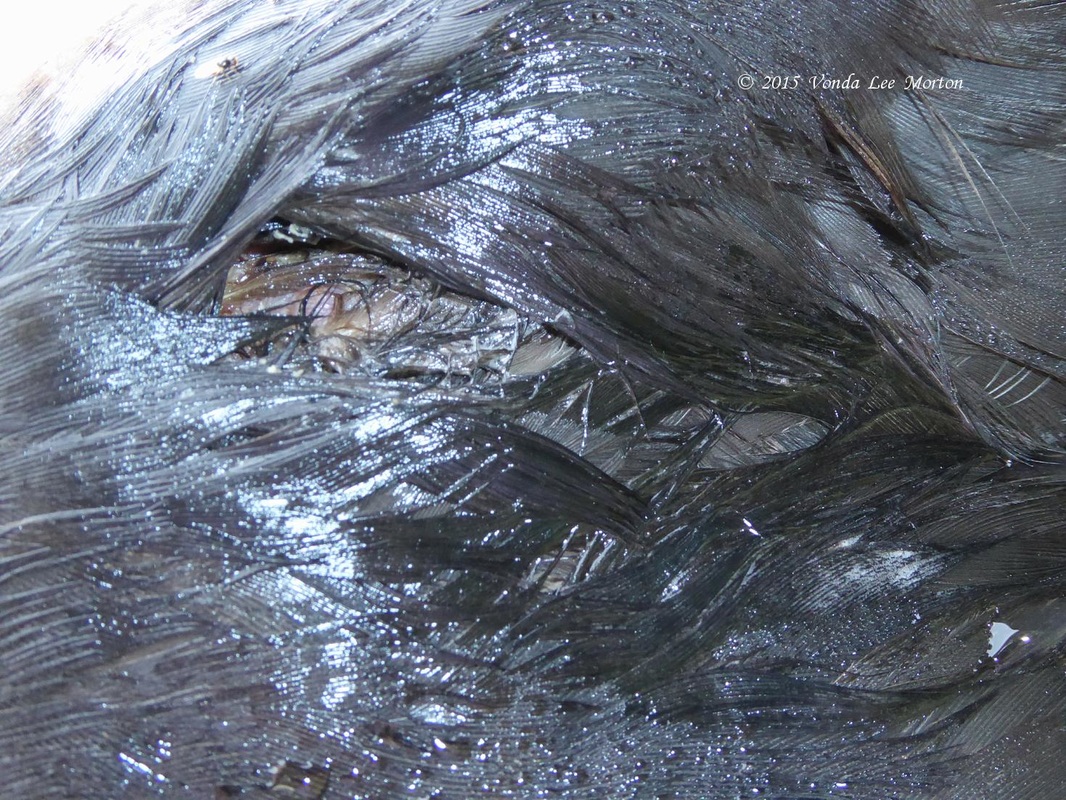
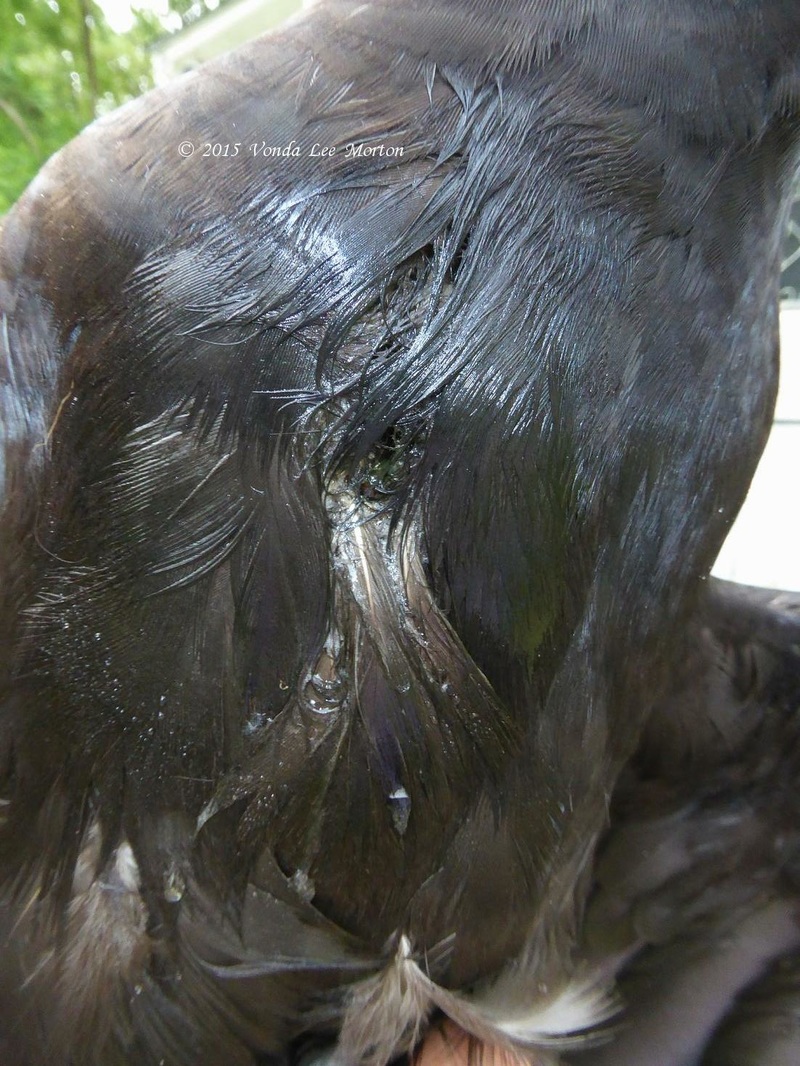
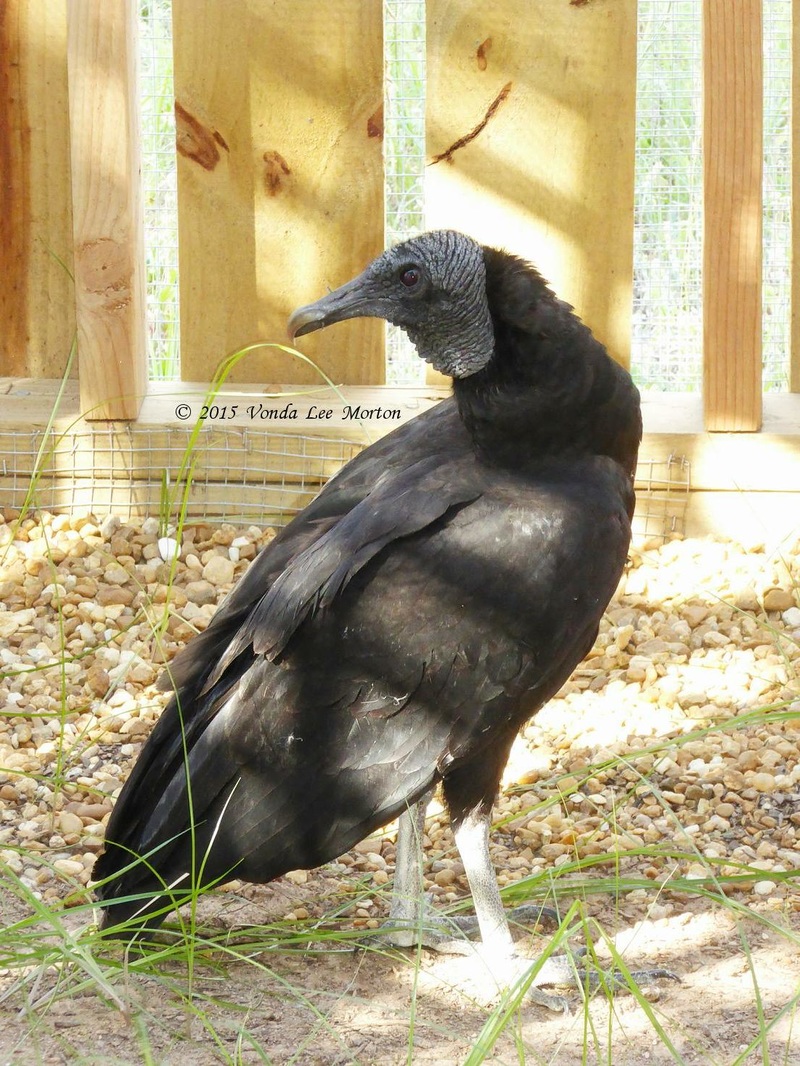
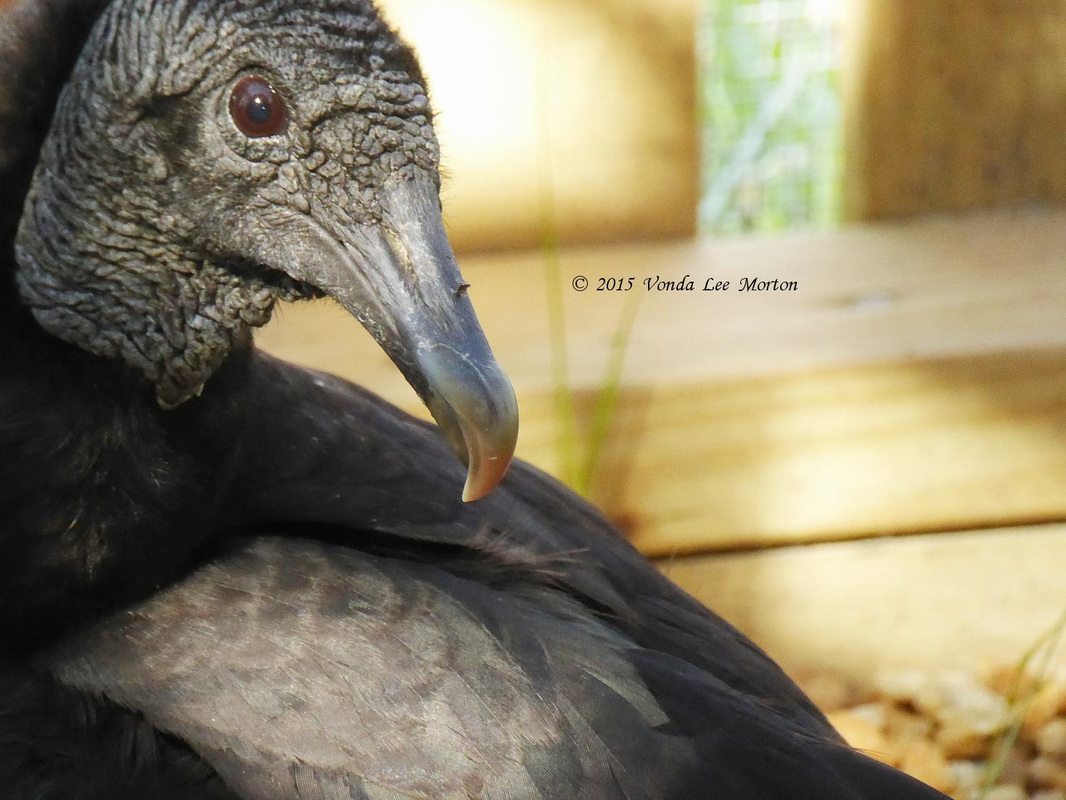
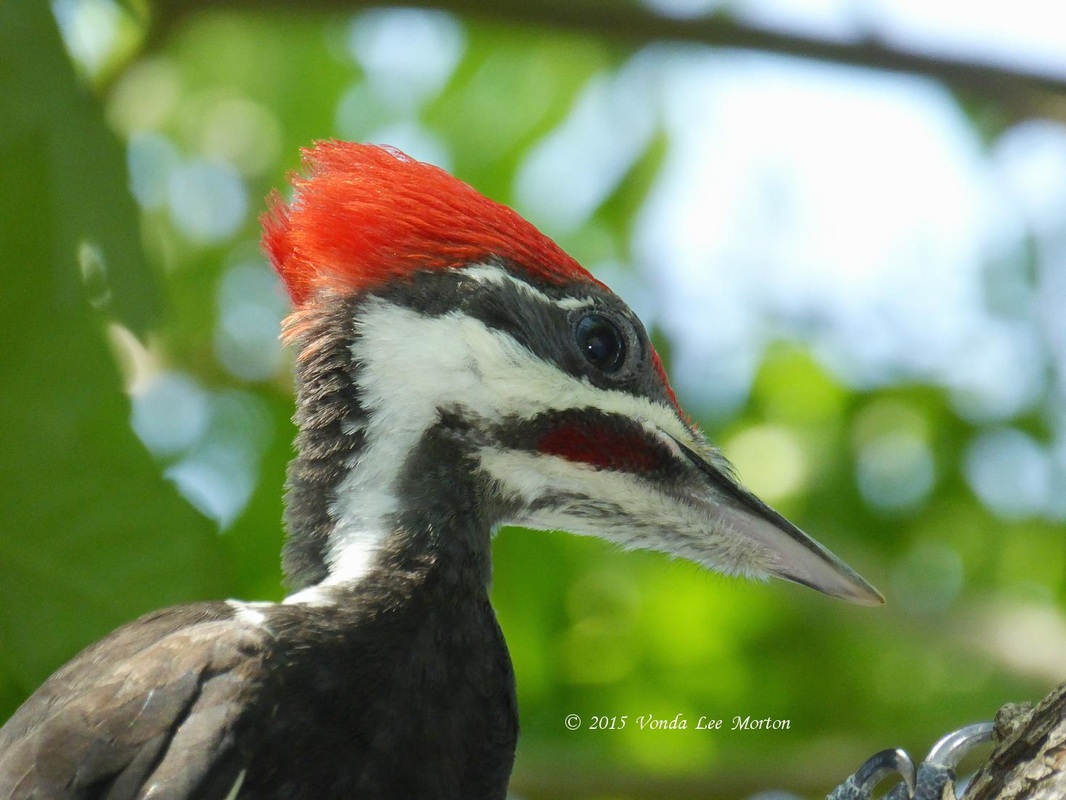
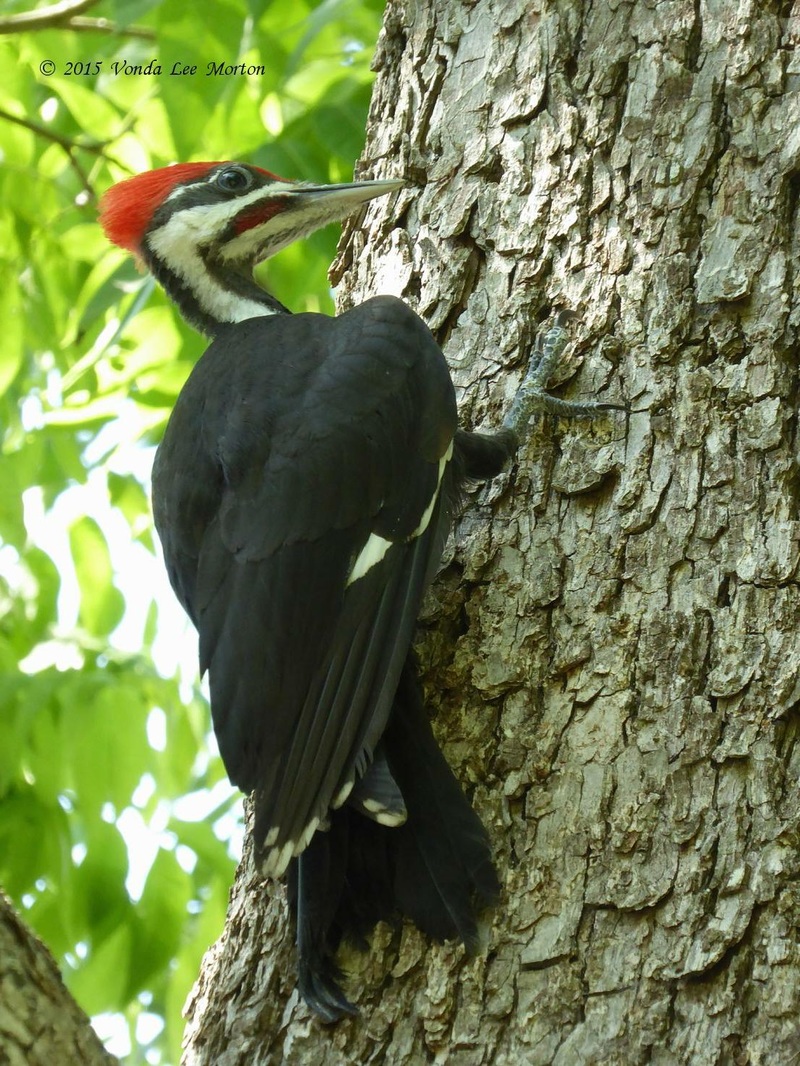
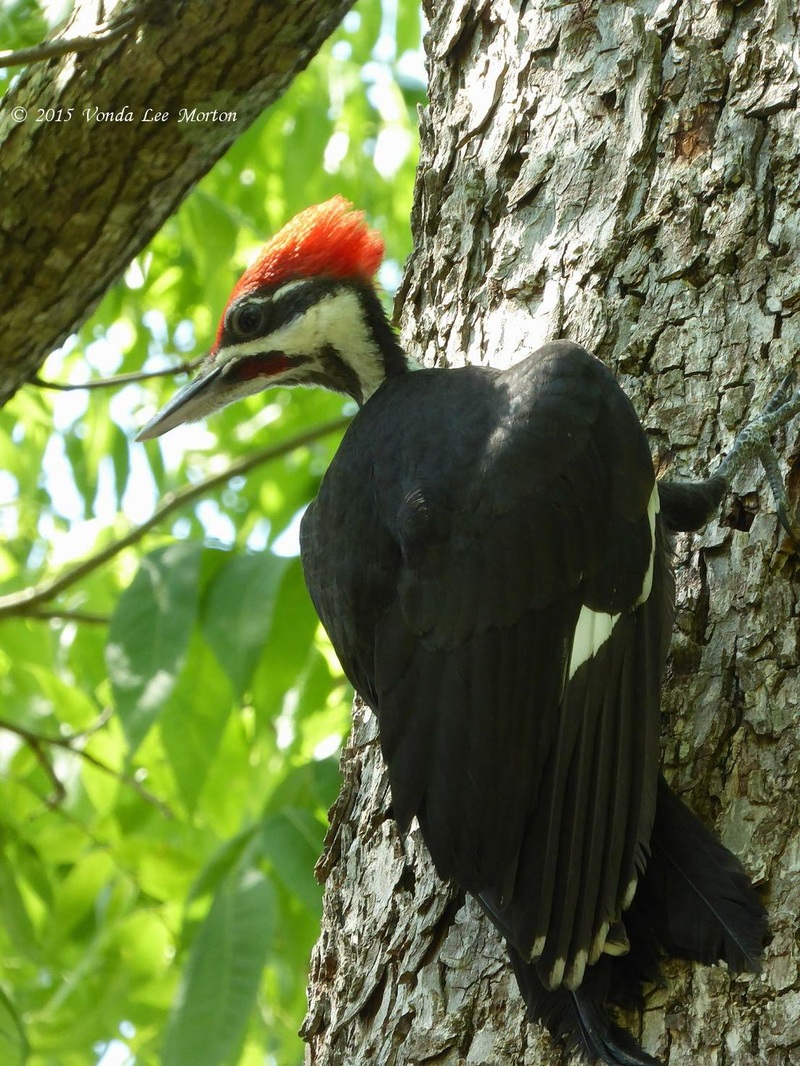
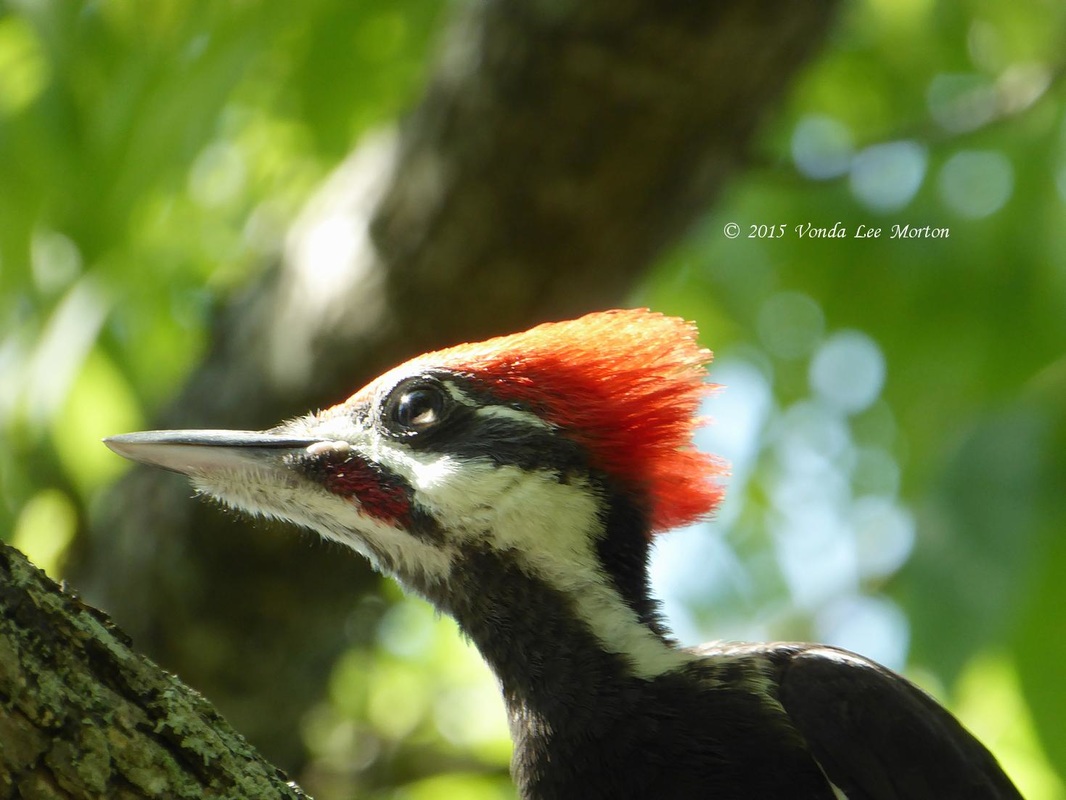
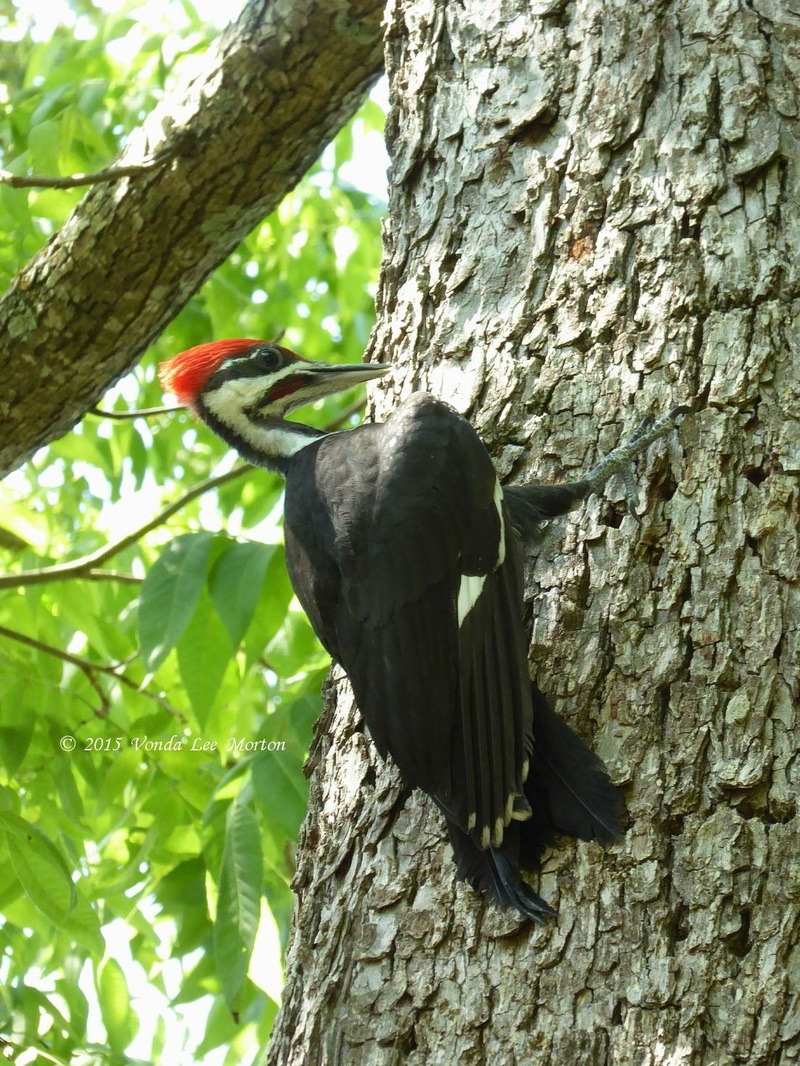
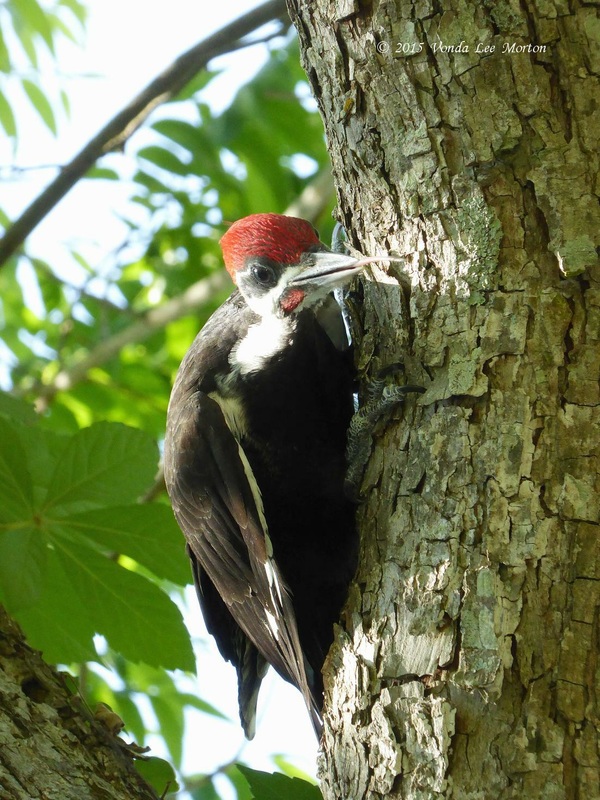
 RSS Feed
RSS Feed
